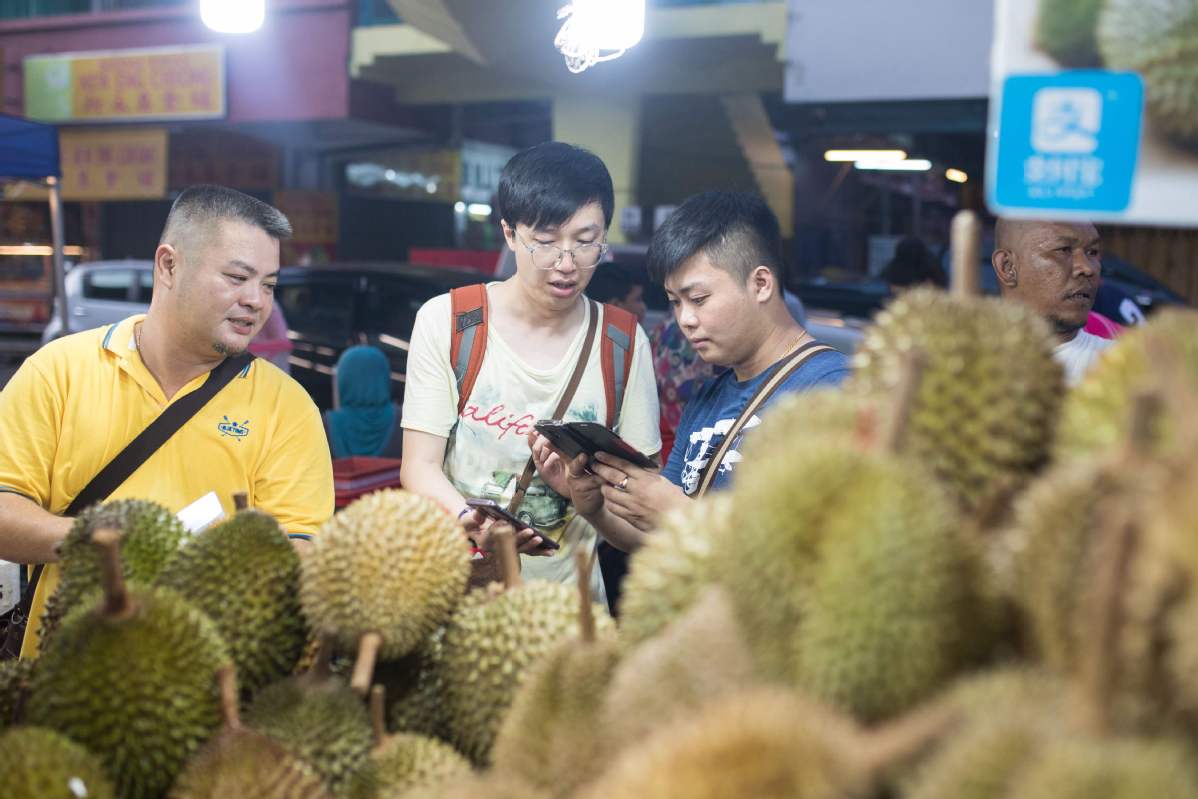When exports to China get digital spike
By He Wei in Shanghai | China Daily | Updated: 2019-09-09 09:32

Alibaba, its affiliates leverage cutting-edge technologies to help SMEs grow in Southeast Asia
One man's meat is another man's poison - the proverb holds true for people's responses to durian. You either loathe the pulpy-creamy, sweet and stinky fruit or love it so much you strike gold by exporting it.
In May, China decided to allow imports of Malaysian whole durians. Ever since, fruit traders in China and Malaysia have been blazing a trail in the multibillion yuan durian market.
The expansion of export portfolio beyond frozen pulp and puree is what drives Leron Yee Poh Soon, the Malaysian co-founder of durian seller DKing, and his colleagues these days. They sleep just three hours a day during the harvest season.
Every day, they pick up fruits across the 1,000 mu (66.7 hectare) orchard located in Raub, a township within two hours' drive to Kuala Lumpur, categorizing them based on stringent selection tips, and transporting them to ports and processing plants.
Soon has jumped on the durian export bandwagon in right earnest. He picks up only premium-quality fruits known as A-level Musang King for export to China. Every fruit is tied to the tree with a cord so it does not fall and split open prematurely.
But, for a relatively small businessman like Soon, rivaling Thailand's dominance in the durian export market is no mean feat. His approach is to team up with Alibaba Group, the Chinese e-commerce platform, which has pledged to facilitate cross-border trade for small and medium-sized enterprises through a variety of digital vehicles.
"Obviously Tmall and Hema Fresh (both are Alibaba's e-commerce platforms) provide very good platforms for us to reach the farthest parts of China," said Soon. He has inked a deal to supply one container-load of whole durians to Hema. "This is one of the fastest, most secure and stable way to be in this massive market."
While cross-border e-commerce is old hat for Alibaba, the world's largest online site by transaction volume, the real game-changer empowering Malaysian merchants is an initiative called electronic World Trade Platform.
Three years after the concept was first proposed by Alibaba founder Jack Ma, eWTP sank its very first root in Malaysia, where a string of commercial facilities, from e-commerce infrastructure, logistics, financial technology to cloud computing, are being upgraded, or even revolutionized, thanks to latest technology.
- Malaysia welcomes more value-added Chinese investment: Official
- Chinese projects to gain further momentum in Malaysia
- Malaysian companies to ride on DFTZ for growth
- Regional e-commerce hub in Malaysia kicks into gear as Alibaba bets big on Southeast Asia
- Belt and Road Initiative, a game changer for the regional economy: Malaysian PM
























